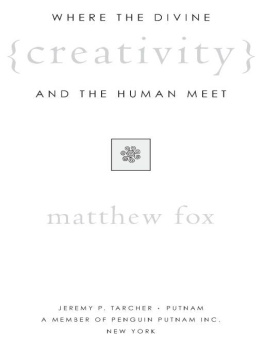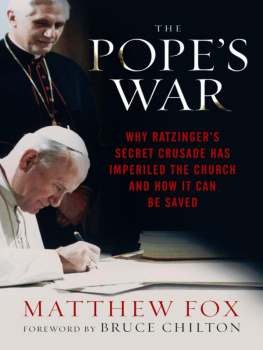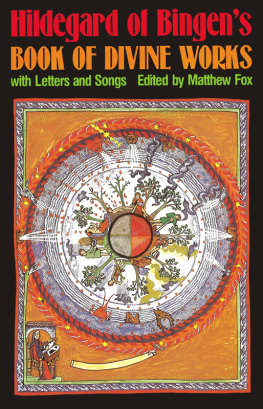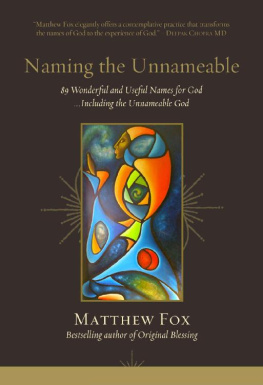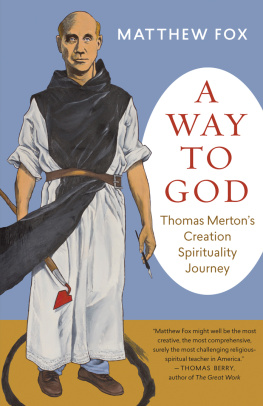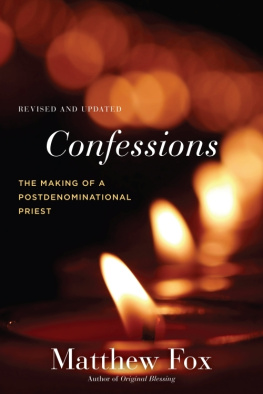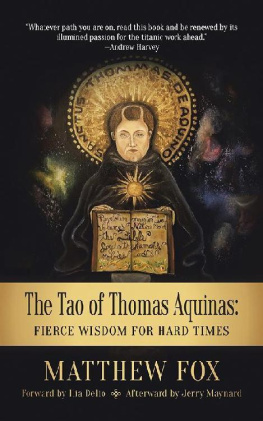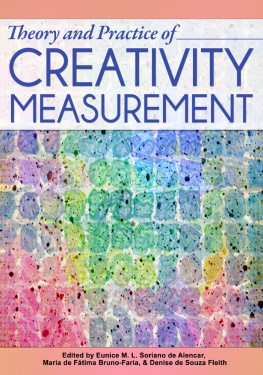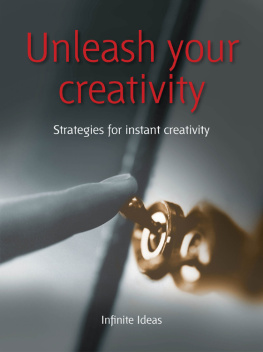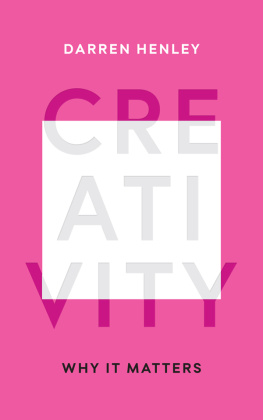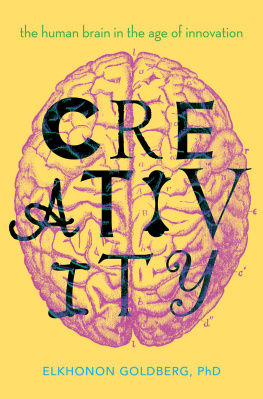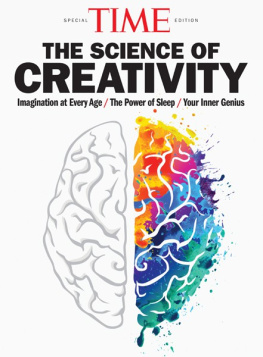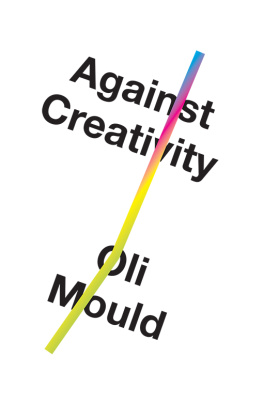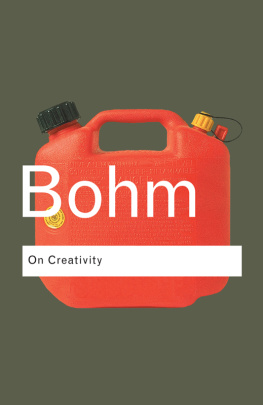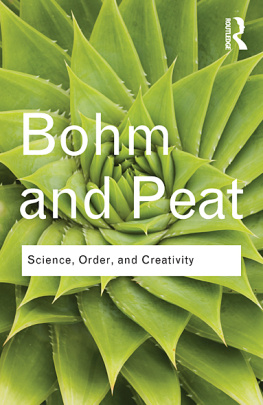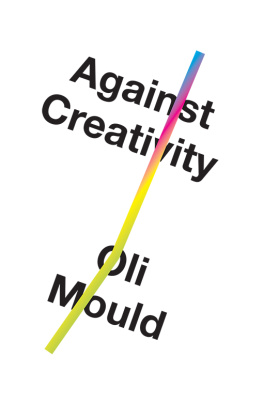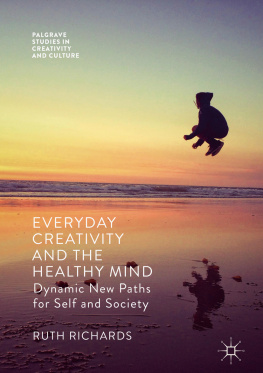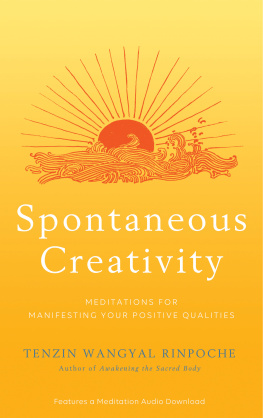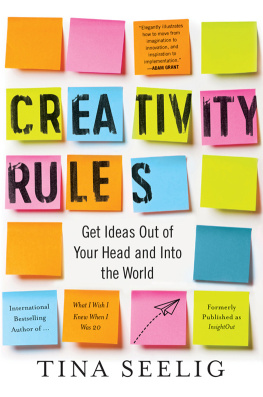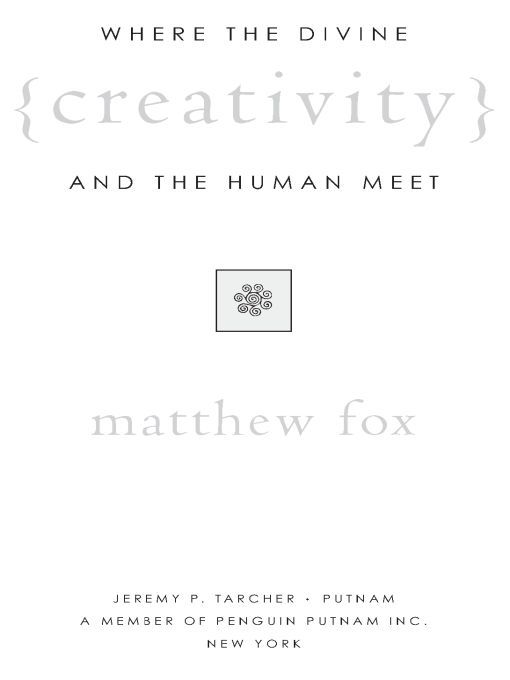Table of Contents
{also by matthew fox}
The Coming of the Cosmic Christ:
The Healing of Mother Earth and the Birth of a Global Renaissance
Confessions: The Making of a Post-Denominational Priest
Creation Spirituality: Liberating Gifts for the Peoples of the Earth
Hildegard of Bingens Book of Divine Works with Letters and Songs (editor)
Illuminations of Hildegard of Bingen
In the Beginning There Was Joy
Manifesto for a Global Civilization (with Brian Swimme)
Meditations with Meister Eckhart
Natural Grace: Dialogues on Creation, Darkness, and the Soul
in Spirituality and Science (with Rupert Sheldrake)
One River, Many Wells: Wisdom Springing from Global Faiths
Original Blessing: A Primer in Creation Spirituality
Passion for Creation: The Earth-Honoring Spirituality
of Meister Eckhart (formerly Breakthrough)
Prayer: A Radical Response to Life
(formerly On Becoming a Musical, Mystical Bear)
The Physics of Angels: Exploring the Realm Where Science
and Spirit Meet (with Rupert Sheldrake)
The Reinvention of Work: A New Vision of Livelihood for Our Time
Religion USA: Religion and Culture by Way of Time Magazine
Sheer Joy: Conversations with Thomas Aquinas on Creation Spirituality
Sins of the Spirit, Blessings of the Flesh: Lessons for
Transforming Evil in Soul and Society
A Spirituality Named Compassion: Uniting Mystical
Awareness with Social Justice
Western Spirituality: Historical Roots, Ecumenical Routes (editor)
Whee! We, Wee All the Way Home: A Guide to
a Sensual, Prophetic Spirituality
Wrestling with the Prophets: Essays on Creation
Spirituality and Everyday Life
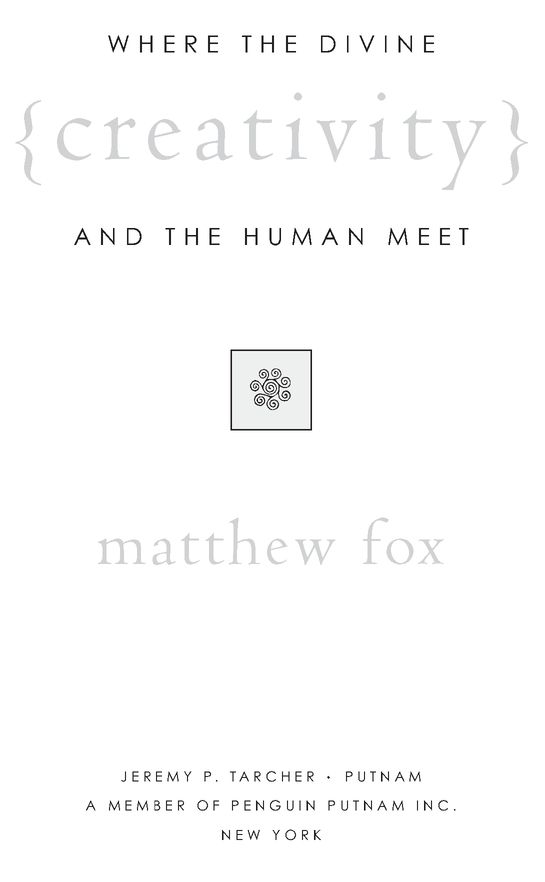
This book is dedicated to the countless artists in my life, living and
dead, students and teachers, musicians, poets, painters, playwrights,
and more who make life come alive for me and all of us.
THANK YOU ALL!
{preface}
creative spirit, holy spirit
This book arose from a request from my publisher who heard me speak on the subject of The Divine Artist Within at the Unity Church of New York in New York City in June 2000. Some thoughts offered here also developed from a talk I was invited to give at the Art Institute of Chicago in 1993. I am grateful for the invitation to expand these talks, for in the process of writing this book I feel I have deepened my love and understanding of creativity.
I do not know any area of human potential more important if we are to be a sustainable species again. Creativity, when all is said and done, may be the best thing our species has going for it. It is also the most dangerous. I explore creativity here in the following manner: First I ask: How essential is creativity to our human nature? Chapters 1 and 2 explore this question: chapter 1 by exposing pseudo-meanings of being human, chapter 2 by proposing that creativity is our real nature. Creativity constitutes the very meaning of being human, and our powers of creativity distinguish us from other species. Evil, as well as profound goodness, transpires through our creativity.
Chapter 3 poses the question: Where does creativity comes from? Chapter 4 speaks of the Divine imagination that takes us into our creativity, as mystics have always taught and recognized. Chapter 5 considers two myths about creativity and its consequences: the Prometheus-Hercules myth and the Adam-Jesus Christ myth. Chapter 6 considers the obstacles to creativity that must be removed for creativity to flowwhat is holding us back? Chapter 7 asks how we can tap more fully into our creative power, and chapter 8 speaks to cultural benefits that will flow when we bring creativity to bear on education, everyday life and relationships, politics and worship. Creativity assists us to move as a species to our next level of evolution.
When we consider creativity, we are considering the most elemental and innermost and deeply spiritual aspects of our beings. The great thirteenth-century mystic Meister Eckhart asks: What is it that remains? And his answer is: That which is inborn in me remains. That which we give birth to from our depths is that which lives on after us. That which is inborn in us constitutes our most intimate momentsintimate with self, intimate with God the Creative Spirit, and intimate with others. To speak of creativity is to speak of profound intimacy. It is also to speak of our connecting to the Divine in us and of our bringing the Divine back to the community.
This is true whether we understand our creativity to be begetting and nourishing our children, making music, doing theater, gardening, writing, teaching, running a business, painting, constructing houses, or sharing the healing arts of medicine and therapy. Imagination brings about not just intimacy but a big intimacy, a sense of union with the cosmos, a sense of belonging and being at home, of our knowing we have not only a right to be here but a task to do as well while we are here. French philosopher Gaston Bachelard says that great dreamers possess intimacy with the world. The artist in us and among us shares intimacy and returns ones intimacy to the world, nourishing the community with ones inner experience. This process of intimacy shared feels a lot like a sacred experience.
An example of what I mean can be found in a letter the psychologist Carl Rogers wrote about his work to theologian Paul Tillich. Rogers was very secular in his outlook until very near the end of his life, yet in this letter he confesses as follows: I feel as though I am somehow in tune with the forces of the universe or that forces are operating through me in regard to this helping relationship. And his creativity as a therapist elicited awe from him: I stand by with awe at the emergence of a self, a person, as I see a birth process in which I have had an important and facilitating part struggling to be himself, yet deathly afraid of being himself. I do not believe that Carl Rogers at work is that different from any of us in our work and relationships. In our creativity, however it is expressed, we can all feel in tune with the forces of the universe, and the result of our work often urges us to stand by with awe. Indeed, we must feel these things if we are to carry on with integrity.
The title of this book, Creativity: Where the Divine and the Human Meet, suggests that there is a special encounter with the Divine where creativity occurs. Is any place more intimate than the place where we create? Where we co-create with the Spirit of God and the Spirit of largesse that inspires our souls where we love? Where we make love? Where we love others through serving them with our labor? Where we love our children? Where we paint our truth? Where we dance our dance? Where we speak our words? Where we work? Where we utter our poetry?
The our is so big, so immense when we do these things. The our includes the hydrogen atoms of our bodies that are fourteen billion years old; the carbon and other atoms in us that are five billion years old; the food we have eaten and the drink we have drunk that give us the energy to work; the ideas that have penetrated our minds and impregnated our imaginations; the language we learned to speak so many years ago; the beauty and the pain we have absorbed through our days on earth.

